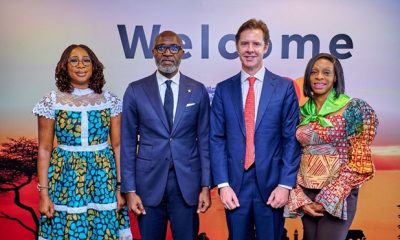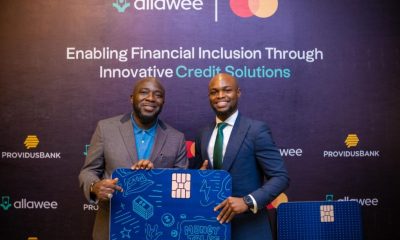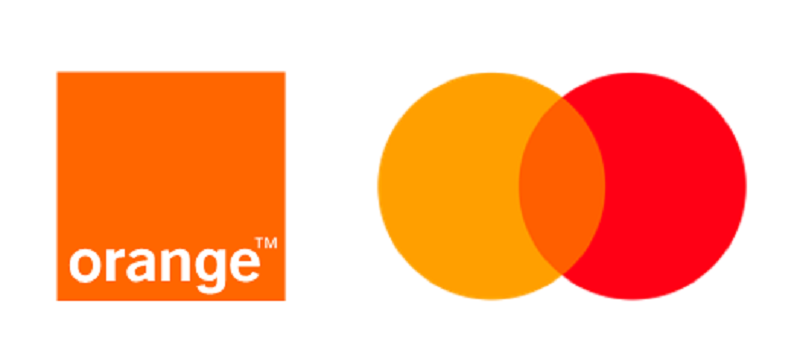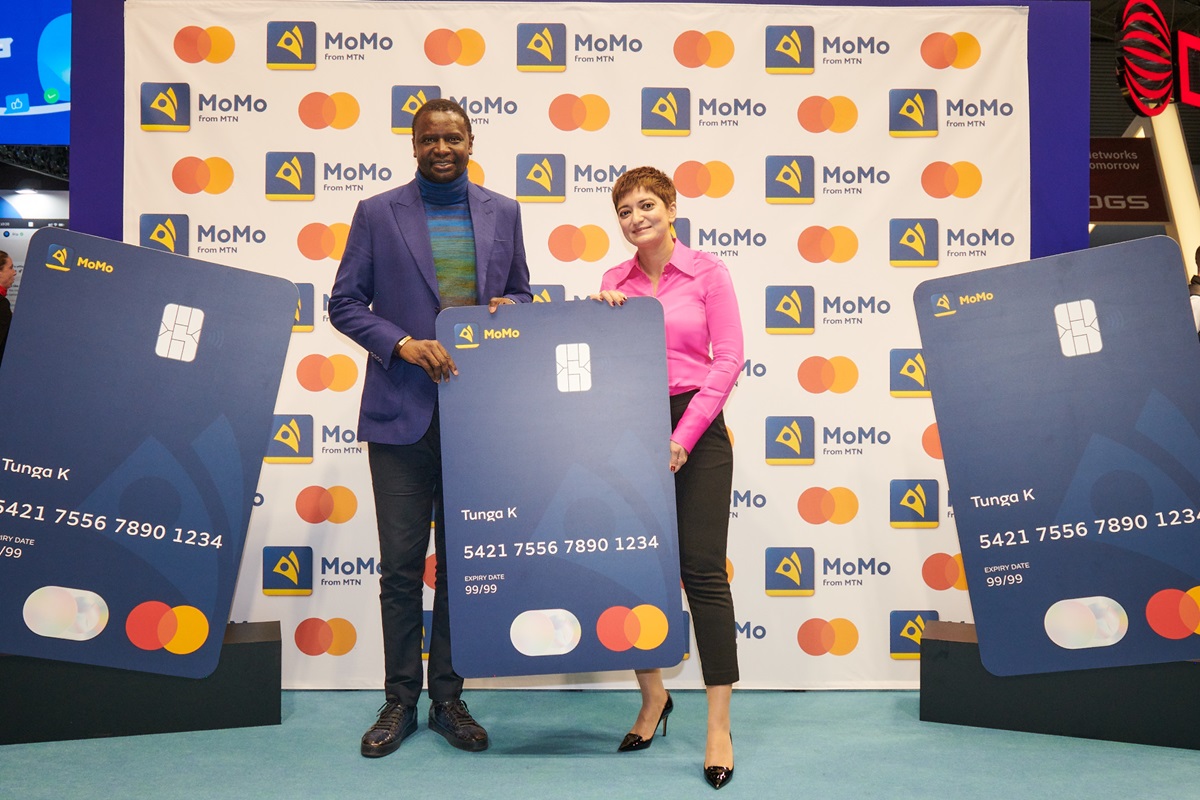Technology
NetPlus, MasterCard Deliver e-Commerce Payment App
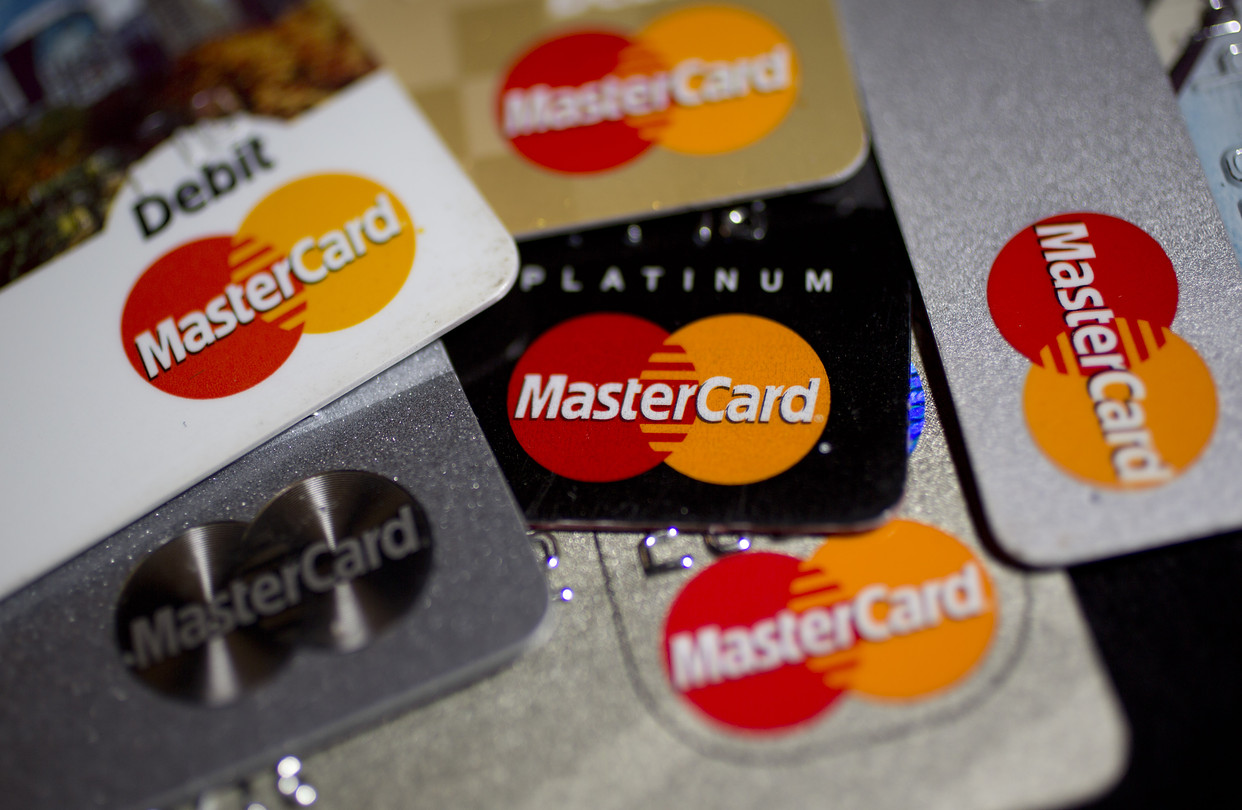
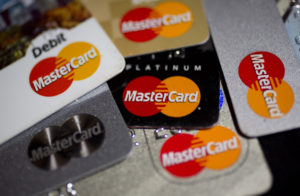
By Dipo Olowookere
A giant leap forward has been made in the African e-commerce sector plagued by cash, with the majority of payments still being made in cash at the point of delivery.
The industry is predicted to generate yearly e-commerce sales in Africa of $75 billion by 2051 and in Nigeria alone; it generates over $1 billion every year and continues to grow exponentially.
But the biggest challenge facing online retailers has been cash, as it poses logistical issues and puts the consumer, merchant and delivery service at risk.
However, this is now a thing of the past with the development of a payment solution created by a Nigerian tech start-up called NetPlus in collaboration with MasterCard, a leader in payment system in the world.
Called the MasterCard e-commerce solution, it empowers the consumer, the e-retailer as well as the delivery service by providing a simple and secure digital solution.
Consumers can pre-authorise the payment when placing their order online, the e-retailer is given a sense of comfort and dispatches the goods via a delivery service, who is able to use the MasterCard e-commerce app to authorise the release of the payment once the consumer approves, ensuring the merchant is paid immediately.
A key feature is that if the consumer is dissatisfied with their package the transaction can be voided and the funds immediately released, so there is no delay – one of the biggest points of frustration for consumers buying online in Africa.
The process takes three simple steps as highlighted below;
Step 1: The buyer (consumer) completes an online purchase and pre-authorisation is placed on the funds until the goods or service is delivered. The money is not taken out of their bank account, but is simply held until delivery is made.
Step 2: The seller (e-retailer) will dispatch the goods with help of a delivery service, the delivery service will have access to the MasterCard e-commerce app on either their mobile or tablet. This allows them to complete the transaction on behalf of the e-retailer once the delivery has been completed. This ensures the funds flow directly to the e-retailer and that the delivery service does not handle cash unnecessarily.
Step 3: On delivery the consumer is able to inspect their goods and confirm if they are satisfied. The transaction is then verified on the app by the delivery service representative, and as an extra security measure the consumer will enter the last four digits of their bank card to complete the transaction. If the consumer is not happy with their package, because they received the wrong size for example, the transaction is immediately voided on the app and the money immediately reflects back in their bank account.
Commenting on this development, Vice President and Area Business Head for West Africa at MasterCard, Ms Omokehinde Adebanjo, stated that, “Cash has held the sector back from reaching its full potential in Africa.
“We have invested a great deal of energy and resources to develop a workable solution that will meet the diverse needs of merchants and consumers across the continent, and world.
“It is fitting that our partnership with NetPlus, an African-born tech company, has resulted in us achieving our goal of digitizing the e-commerce sector.”
On his part, founder and CEO of NetPlus, Mr Wole Faroun, noted that, “The solution comes with extensive benefits for merchants and consumers.
“For e-retailers, the pre-authentication reflects commitment on the part of the consumer to the purchase, as well as guarantees real time payment and improved liquidity.
“Consumers benefit from renewed confidence in online shopping, peace of mind as the payment is only processed on delivery without the need for cash.”
Particularly exciting about the partnership between MasterCard and the tech start-up is the fact that NetPlus is the first African start-up to be selected by the MasterCard Start Path programme.
The initiative is open to start-ups from Africa and across the world who are rethinking banking and payments and who are well established already, having secured significant investment.
During a six-month virtual programme, Start Path provides start-ups with the operational support, mentorship and investment they need to develop the next generation of commerce solutions and grow their operations.
NetPlus was one of five start-ups chosen globally for the last programme of 2016, and Mr Faroun along with his team have already benefited from knowledge sharing and mentorship sessions in New York, London and Singapore where they were able to meet with other start-ups and MasterCard customers.
The Nigerian tech company proves that there is tremendous talent on the continent and that start-ups are contributing significantly to the growth of Africa.
Applications for the next six-month virtual program will be accepted through 11:59 pm ET on Tuesday, August 1, 2017.
Interested start-ups can visit https://www.startpath.com/ for additional information and to submit an application.
Technology
Telecom Operators to Issue 14-Day Notice Before SIM Disconnection

By Adedapo Adesanya
Telecommunications operators in Nigeria will now be required to give subscribers a minimum of 14 days’ notice before deactivating their SIM cards over inactivity or post-paid churn, following a fresh proposal by the Nigerian Communications Commission (NCC).
The proposal is contained in a consultation paper, signed by the Executive Vice Chairman and Chief Executive Officer of the NCC, Mr Aminu Maida, and titled Stakeholders Consultation Process for the Telecoms Identity Risks Management Platform, dated February 26, 2026, and published on the Commission’s website.
Under the proposed amendments to the Quality-of-Service (QoS) Business Rules, the Commission said operators must notify affected subscribers ahead of any planned churn.
“Prior to churning of a post-paid line, the Operator shall send a notification to the affected subscriber through an alternative line or an email on the pending churning of his line,” the document stated.
It added that “this notification shall be sent at least 14 days before the final date for the churn of the number.”
A similar provision was proposed for prepaid subscribers. According to the Commission, operators must equally notify prepaid customers via an alternative line or email at least 14 days before the final churn date.
Currently, under Section 2.3.1 of the QoS Business Rules, a subscriber’s line may be deactivated if it has not been used for six months for a revenue-generating event. If the inactivity persists for another six months, the subscriber risks losing the number entirely, except in cases of proven network-related faults.
The new proposal is part of a broader regulatory review tied to the rollout of the Telecoms Identity Risk Management System (TIRMS), a cross-sector platform designed to curb fraud linked to recycled, swapped and barred mobile numbers.
The NCC explained in the background section of the paper that TIRMS is a secure, regulatory-backed platform that helps prevent fraud stemming from churned, swapped, barred Mobile Station International Subscriber Directory Numbers in Nigeria.
It said this platform will provide a uniform approach for all sectors in relation to the integrity and utilisation of registered MSISDNs on the Nigerian Communications network.
In addition to the 14-day notice requirement, the Commission also proposed that operators must submit details of all churned numbers to TIRMS within seven days of completing the churn process, strengthening oversight and accountability in the system.
The consultation process, which the Commission said is in line with Section 58 of the Nigerian Communications Act 2003, will remain open for 21 days from the date of publication. Stakeholders are expected to submit their comments on or before March 20, 2026.
Technology
Silverbird Honours Interswitch’s Elegbe for Nigeria’s Digital Payments Revolution

By Modupe Gbadeyanka
The founder of Interswitch, Mr Mitchell Elegbe, has been honoured for pioneering Nigeria’s digital payments revolution.
At a ceremony in Lagos on Sunday, March 1, 2026, he was bestowed with the 2025 Silverbird Special Achievement Award for shaping Africa’s financial ecosystem.
The Silverbird Special Achievement Award recognises individuals whose innovation, vision, and sustained impact have left an indelible mark on society.
Mr Elegbe described the award as both humbling and symbolic of a broader journey, saying, “This honour represents far more than a personal milestone. It reflects the courage of a team that believed, long before it was fashionable, that Nigeria and Africa could build world-class financial infrastructure.”
“When we started Interswitch, we were driven by a simple but powerful idea that technology could democratise access, unlock opportunity, and enable commerce at scale.
“This recognition by Silverbird strengthens our resolve to continue building systems that empower businesses, support governments, and expand inclusion across the continent,” he said when he received the accolade at the Silverbird Man of the Year Awards ceremony attended by several other dignitaries, whose leadership and contributions continue to shape national development and industry transformation.
In 2002, Mr Elegbe established Interswitch after he was inspired by a bold conviction that technology could fundamentally redefine how value moves within and across economies.
Under his leadership, the company has evolved into one of Africa’s foremost integrated payments and digital commerce companies, powering financial transactions for governments, banks, businesses, and millions of consumers.
Today, much of Nigeria’s electronic payments ecosystem traces its foundational architecture to the systems and rails established under his leadership.
“Mitchell’s journey is inseparable from Nigeria’s digital payments evolution. His foresight and resilience helped establish foundational infrastructure at a time when the ecosystem was still nascent.
“This recognition affirms not only his personal legacy, but the broader impact of Interswitch in enabling commerce and strengthening financial systems across Africa,” the Executive Vice President and Group Marketing and Communications for Interswitch, Ms Cherry Eromosele, commented.
Technology
SERAP Seeks FCCPC Probe into Big Tech’s Impact on Nigeria’s Digital Economy

By Adedapo Adesanya
The Socio-Economic Rights and Accountability Project (SERAP) has called on the Federal Competition and Consumer Protection Commission (FCCPC) to urgently investigate major global technology companies over alleged abuses affecting Nigeria’s digital economy, media freedom, privacy rights and democratic integrity.
In a complaint addressed to the chief executive of FCCPC, Mr Tunji Bello, the group accused Google, Meta (Facebook), Apple, Microsoft (Bing), X, TikTok, Amazon and YouTube of deploying opaque algorithms and leveraging market dominance in ways that allegedly undermine Nigerian media organisations, businesses, and citizens’ rights.
The complaint, signed by SERAP Deputy Director, Mr Kolawole Oluwadare, urged the commission to take measures necessary to urgently prevent further unfair market practices, algorithmic influence, consumer harm and abuses of media freedom, freedom of expression, privacy, and access to information.”
SERAP also asked the FCCPC to convene a public hearing to investigate allegations of algorithmic discrimination, data exploitation, revenue diversion, and anti-competitive conduct involving the tech giants.
According to the organisation, dominant digital platforms now act as private gatekeepers of Nigeria’s information and business ecosystem, wielding enormous influence over public discourse and market competition without sufficient transparency or regulatory oversight.
“Millions of Nigerians rely on these platforms for news, information and business opportunities,” SERAP stated, warning that opaque algorithms and offshore revenue extraction models pose both economic and human rights concerns.
The group argued that the alleged practices threaten media plurality, consumer protection, privacy rights, and the integrity of Nigeria’s forthcoming elections.
SERAP pointed to actions taken by the South African Competition Commission, which investigated Google over alleged bias against local media content, adding that the South African probe reportedly resulted in measures including algorithmic transparency requirements, compliance monitoring and financial remedies.
SERAP urged the FCCPC to take similar steps to safeguard Nigerian media and businesses.
The organisation maintained that if established, the allegations could amount to violations of Sections 17 and 18 of the Federal Competition and Consumer Protection Act (FCCPA), which prohibit abuse of market dominance and anti-competitive conduct.
SERAP stressed that the FCCPC has statutory authority to investigate and sanction conduct that substantially prevents, restricts or distorts competition in Nigeria.
It also warned that failure by the Commission to act promptly could prompt the organisation to pursue legal action to compel regulatory intervention.
Citing concerns reportedly raised by the Nigerian Press Organisation (NPO), SERAP said big tech companies have fundamentally altered Nigeria’s information environment, creating what it described as a structural imbalance of power that threatens the sustainability of professional journalism.
Among the allegations listed are: Algorithms controlled outside Nigeria determining content visibility, monetisation of Nigerian news content without proportionate reinvestment, offshore extraction of advertising revenues, limited discoverability of Nigerian websites and platforms, and lack of transparency in ranking and recommendation systems.
SERAP argued that declining revenues in the Nigerian media industry have led to shrinking newsrooms, closure of bureaus, and the emergence of news deserts, weakening journalism’s constitutional role in democratic accountability.
The organisation further warned that algorithmic opacity and data-driven micro-targeting could influence voter exposure to information ahead of Nigeria’s forthcoming elections, raising concerns about electoral fairness and transparency.
-

 Feature/OPED6 years ago
Feature/OPED6 years agoDavos was Different this year
-
Travel/Tourism10 years ago
Lagos Seals Western Lodge Hotel In Ikorodu
-

 Showbiz3 years ago
Showbiz3 years agoEstranged Lover Releases Videos of Empress Njamah Bathing
-

 Banking8 years ago
Banking8 years agoSort Codes of GTBank Branches in Nigeria
-

 Economy3 years ago
Economy3 years agoSubsidy Removal: CNG at N130 Per Litre Cheaper Than Petrol—IPMAN
-

 Banking3 years ago
Banking3 years agoSort Codes of UBA Branches in Nigeria
-

 Banking3 years ago
Banking3 years agoFirst Bank Announces Planned Downtime
-

 Sports3 years ago
Sports3 years agoHighest Paid Nigerian Footballer – How Much Do Nigerian Footballers Earn


